At the Book Launch for Zionism During the Holocaust I described how the Zionist Leaders Obstructed the Rescue of Jews from Hitler where Palestine wasn’t the destination
Below is an extended essay based on my talk.
Zionism During the Holocaust is the first comprehensive book on Zionist relations with the Nazis innearly 40 years. This is surprising at first sight. There have been hundreds if not thousands of books on the Holocaust yet mainstream historians, with the exception of Francis Nicosia, have avoided discussing the role of the Zionist movement in relation to the rescue of Europe’s Jews.
It is as if historians of the Holocaust know that there are some areas of history best left unexplored. Historians operate within an imperialist paradigm and Zionism is nothing if not a movement born of imperialism. What is surprising is that information on the Zionist role during the holocaust is not hard to get hold of if you know where to look. Most of the information I obtained is from Zionist sources.
Mainstream historians understand that exploring too deeply in certain subject areas might not be good for their career. That is why it has been left to people like Noam Chomsky, a linguist, to uncover the depredations of US imperialism in Latin America and elsewhere.
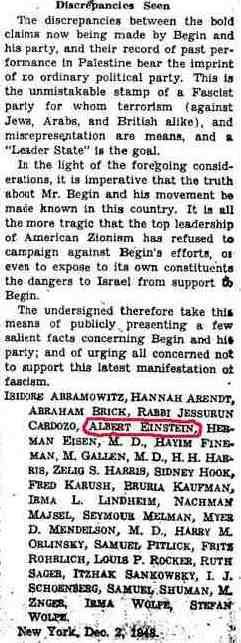
Look what happened to Norman Finkelstein after he wrote The Holocaust Industry. He came to the attention of Trump supporter Harvard’s Alan Dershowitz, lawyer and friend of Jeffrey Epstein and defender of the American Nazi party and the Jewish Defence League.
Dershowitz lobbied De Paul University, a private Catholic University in New York, to deny Finkelstein tenure. De Paul buckled under the pressure despite unanimous academic recommendations from his department and the college wide Faculty Committee. As Inside Higher Ed noted regarding the Dean of Liberal Art’s opposition:
Much of the criticism from the dean focuses on Finkelstein’s book The Holocaust Industry. The book argues that supporters of Israel use the Holocaust unreasonably to justify Israel’s policies.
Yet it is a matter of fact that Israeli politicians use the holocaust to justify their wars of expansion. In November 1969 Abba Eban, Israel’s foreign minister, in an interview with Der Spiegel, described the Green Line separating Israel from the West Bank as Auschwitz borders. Netanyahu later repeated this. As Ali Abunimah noted:
Eban’s meaning was clear – by comparing Israel to the most notorious and emblematic Nazi death camp, he was in effect saying that Arabs in general and Palestinians in particular are Nazis no less capable and desirous of exterminating Jews than was Hitler.
Last Sunday evening nearly 200 people attended the launch for my book. It lasted nearly 2 hours. I spoke for just over 40 minutes and the rest of the time was taken up by discussion. Even so there were people who were unable to ask questions because time had run out.
I want to thank Jewish Network for Palestine for agreeing to host the launch, Haim Bresheeth for agreeing to chair, Becky Massey for helping out behind the scenes with the technology and David Cannon, the Chair of JNP for all the support and help he has given.
David tells me that this is the largest meeting that JNP has ever held and it is fitting that it should be devoted to this topic, a subject that even the most ardent anti-Zionists approach with trepidation.
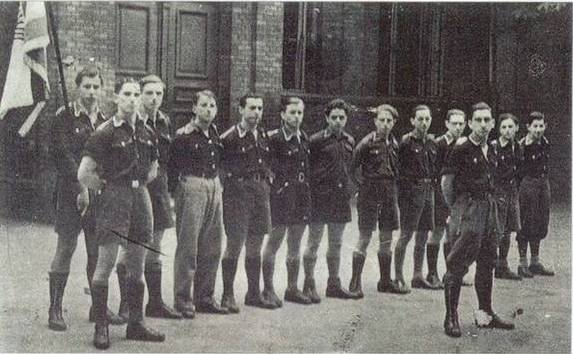
For the past 60 years the Zionist movement has mercilessly used the Holocaust in order to provide a justification for their racist, land thieving, ethnic cleansing State of Jewish Supremacy. It is as if the Afrikaaners, who were the first victims of (British) concentration camps had used that as a justification for Apartheid.
I started off with quotes from Idith Zertal, who was Professor of History and Cultural anthropology at the Hebrew University of Jerusalem, visiting professor at the University of Chicago and the School for Advanced Studies in the Social Sciences in Paris as well as teaching at the University of Basel. Zertal has also appeared on the Anti-Israel Israeli Professor site of the fascist Im Tirzu.
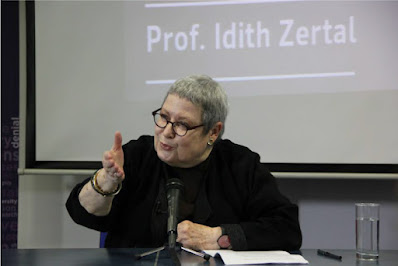
In the Politics of Nationhood Edith Zertal wrote about how the propaganda use of the Holocaust by the Zionist movement had resulted in
the transference of the holocaust situation on to the Middle East reality… it not only created a false sense of the imminent danger of mass destruction. It also immensely distorted the image of the holocaust, dwarfed the magnitude of the atrocities committed by the Nazis, trivializing the unique agony of the victims and the survivors, and utterly demonizing the Arabs and their leaders Edith Zertal
Zertal wrote how
There hasn’t been a war involving Israel ‘that has not been perceived, defined, and conceptualized in terms of the Holocaust.’ Israel has mobilised the Holocaust ‘in the service of Israeli politics.’
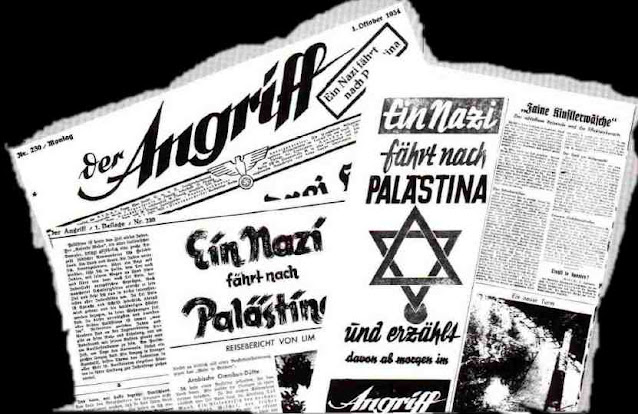
Israel’s enemies – Arafat, Ahmedinajad, President Nasser, Saddam Hussein – all became the ‘new Hitler’ whilst at the same time Prime Minister Netanyahu consciously sought to exculpate Hitler at the 37th Zionist Congress in Jerusalem in 2015, laying the blame for the holocaust on the Mufti of Jerusalem, Haj al-Amin Husseini. Husseini had been imposed on the Palestinians by British High Commissioner Sir Herbert Samuel, an ardent Zionist, in 1921, despite coming fourth in the elections to the post.
Haj Amin al-Husseini went to Hitler and said, “If you expel them, they’ll all come here.” “So what should I do with them?” he asked. He said, “Burn them.”
This account of a conversation between Hitler and the Mufti was entirely fictional since a transcript of the meeting on November 28 1941 is available. There is no mention of the Mufti urging Hitler to exterminate the Jews.
Israel and the Zionist movement have not always been so keen on exploiting the holocaust. Immediately after the war and right up to the Eichmann Trial Israeli politicians preferred not to mention the holocaust at all. The holocaust survivors were a source of shame. It was held that they had, like typical weak diaspora Jews, gone to their deaths like ‘sheep to the slaughter’ in the words of Gideon Hausner, Prosecutor in the Eichmann Trial in 1961.
In the late 1940s and early 1950s the Holocaust was barely mentioned in Israel. In a 220 page-Israeli history textbook published in 1948, just one page was devoted to the Holocaust compared to 10 pages on the Napoleonic wars. [Zertal, Politics of Nationhood, p.94]
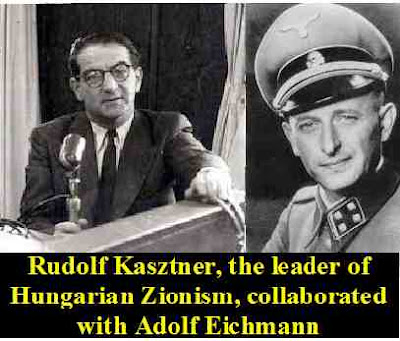
It was only after the 1954-8 Kasztner Trial, a libel claim by a notorious Zionist collaborator and leader of Hungarian Zionism, that Ben Gurion and the Israeli government decided that it was time for them to own the holocaust.
The prevailing view in the Yishuv, the Jewish community in Palestine, was that holocaust survivors represented the ‘survival of the worst.’ In Ben-Gurion’s view they were ‘hard, evil and selfish people and their experiences destroyed what good qualities they had left.’ [Peter Novick, The Holocaust in American Life, p.69]
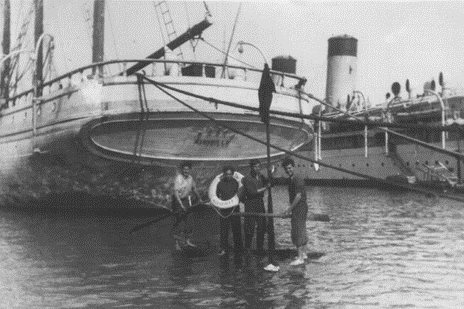
Zionism arose in the late 19th Century as a reaction to and a reflection of anti-Semitism. Leon Pinsker, who formed The Lovers of Zion wrote in Autoemancipation that:
‘Judaephobia is then a mental disease, and as a mental disease it is hereditary, and having been inherited for 2,000 years, it is incurable.’
If anti-Semitism was incurable then there was no point in fighting or opposing something that every non-Jew carried with them.
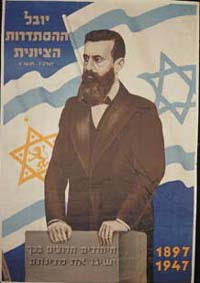
Theodor Herzl, the founder of Political Zionism wrote that
‘In Paris… I achieved a freer attitude towards anti-Semitism, which I now began to understand historically and to pardon. Above all, I recognise the emptiness and futility of trying to ‘combat’ anti-Semitism.’ [Diaries p.6]
This was in the middle of the Dreyfus Affair. Zionism blamed the Jews themselves for anti-Semitism. Their mere presence among other nations caused resentment. The Jews were a homeless nation, guests who had outstayed their welcome.
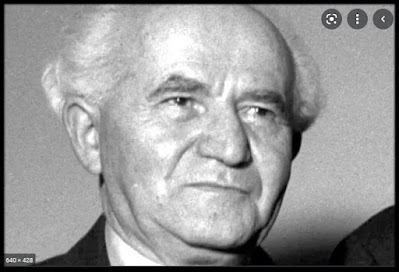
Herzl in his founding pamphlet the ‘Jewish State’ wrote that:
“The unfortunate Jews are now carrying the seeds of anti-Semitism into England; they have already introduced it into America.” p.15
Herzl’s answer to anti-Semitism was not to fight it but to form a Jewish state. The problem was that most Jews didn’t agree. Most of them saw Zionism as a form of Jewish anti-Semitism. The anti-Semites wanted to be rid of the Jews and the Zionists agreed to go.
Between the middle of the 19th century and 1914 over two and a half million Jews left Eastern Europe for the West, mainly the United States and Britain. Barely 1% went to Palestine.
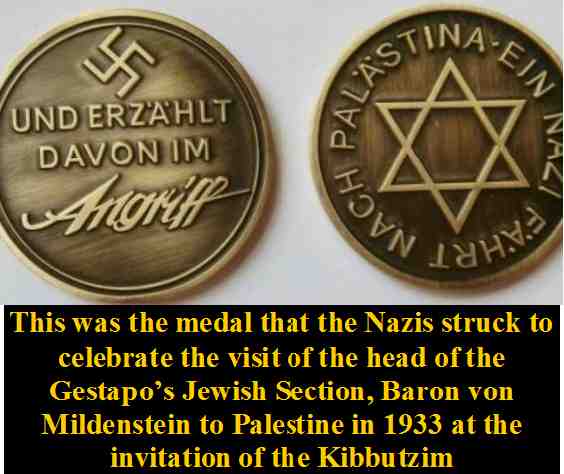
From the start Zionism saw the fight against anti-Semitism as futile. In fact anti-Semitism could be useful. It didn’t take long for Herzl to realise that their only friends were the anti-Semites. Without them there would be no incentive for the Jews to emigrate. He wrote:
‘Greater exertions will hardly be necessary to spur on the movement. Anti-Semites provide the requisite impetus.’ P. 57 JS
Indeed, anti-Semitism was beneficial!
(It) will not harm the Jews. I consider it to be a movement useful to the Jewish character. It represents the education of a group by the masses… Education is accomplished by hard knocks. [Diaries p.10]
Herzl suggested that Anti-Semitism ‘probably contains the Divine will to Good’. (Diaries p.231) As Israeli novelist A B Yehoshua, told the Union of Jewish Students (Jewish Chronicle 22.1.18)
‘Anti-Zionism is not the product of the non-Jews. On the contrary, the Gentiles have always encouraged Zionism, hoping that it would help rid them of the Jews in their midst. Even today, in a perverse way, a real anti-Semite must be a Zionist.’
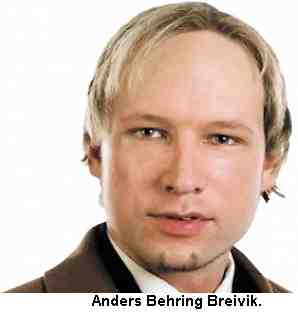
And so it is that all the best anti-Semites – Trump, Bannon, Tommy Robinson, Richard Spencer, who describes himself as a ‘White Zionist’ – are all ardently pro-Zionist.
During the Dreyfus Affair the leading anti-Dreyfussard was Edouard Drumont who favourably reviewed The Jewish State, in an article ‘Solution de la Question Juive’ published in La Libre Parole on 16 January 1897. Herzl was delighted with the review but the reaction of most Jews to the Zionists was anything but delightful. Lucien Wolfe of the Board of Deputies wrote:
‘I have spent most of my life in combating these very doctrines, [that Jews form a separate nation] when presented to me in the form of anti-Semitism, and I can only regard them as the more dangerous when they come to me in the guise of Zionism. They constitute a capitulation to our enemies.’
The Zionists saw, not the anti-Semites but the Jewish diaspora, who refused to go to Palestine, as their enemy. In their eyes these Jews were an abomination. Jacob Klatzkin, editor of the Zionist Die Welt wrote expressing his hatred of those opposed to anti-Semitism:
‘If we do not admit the rightfulness of anti-Semitism we deny the rightfulness of our own nationalism… Instead of establishing societies for defence against the anti-Semites who want to reduce our rights, we should establish societies for defence against our friends, who desire to defend our rights.’
Pinhas Rosenbluth, Israel’s first Minister of Justice, described Palestine as ‘an institute for the fumigation of Jewish vermin’. Arthur Ruppin, the Founder of Israeli Land Settlement and the second most important figure in Palestinian Zionism, retorted when a friend called him an anti-Semite ‘I have already established here that I despise the cancers of Judaism more than does the worst anti-Semite.’
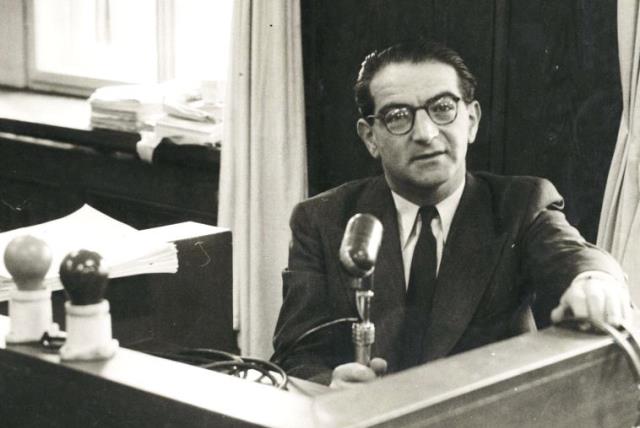
Herzl wrote an essay Mauschel (an anti-Semitic term equivalent to ‘kike’) in Die Welt. a long attack on anti-Zionist Jews (the vast majority) which employed every anti-Semitic stereotype in the book.
Chaim Weizmann, the first President of Israel, wrote in his autobiography Trial and Error of his understanding and sympathy for the leader of the proto-fascist anti-Semitic British Brothers League, William Evans-Gordon MP.
our people were rather hard on him. The Aliens Bill in England and the movement which grew around it were natural phenomenon which might have been foreseen… Sir William Evans-Gordon had no particular anti-Jewish prejudices… He acted as he thought, according to his best lights and in the most kindly way, in the interests of his country… he was sincerely ready to encourage any settlement of Jews almost anywhere in the British Empire, but he failed to see why the ghettos of London or Leeds or Whitechapel should be made into a branch of the ghettos of Warsaw and Pinsk.
Evans-Gordon, the Tory MP for Stepney, was the Enoch Powell of his day, yet Weizmann sought to excuse his anti-Semitism because he was only motivated by concern for his country. The same could be said for every common and garden racist, from Nigel Farage to Boris Johnson. All of them claim to be patriots who love their country.
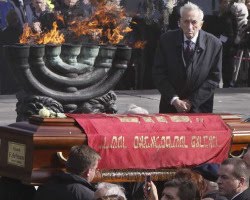
Today when Zionists see ‘anti-Semitism’ under every rock and stone, when ‘anti-Semitism’ is employed against supporters of the Palestinians, many people are fooled into believing that the Zionists are genuinely concerned with opposing anti-Semitism.
The primary concern of Zionist lobby groups – the Board, UJS and the CST is with anti-Zionism notanti-Semitism. Genuine anti-Semitism of the Right does not disturb them.
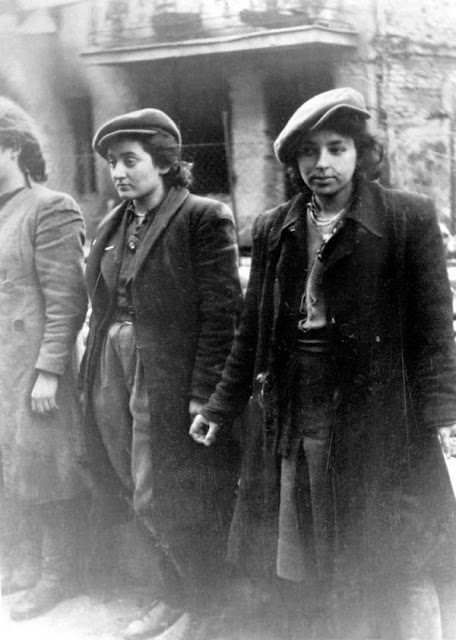
From the beginning Herzl realised that the Zionist movement had to form an alliance with an imperialist power. Herzl traversed Europe meeting with a variety of statesman, royalty and diplomats from the Pope to the German Kaiser and the Ottoman Sultan. Herzl died before his dream could be realised but it was continued by the Labour Zionists who began colonisation in 1904 with the second Aliyah.
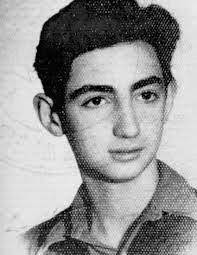
Zionism sought to establish a settler colony in Palestine and in 1917 this became a reality with the Balfour Declaration in which the British promised the land of the Palestinians to the Zionists. The sole concern of Zionism henceforth was building up the Zionist state-in-the-making in Palestine. The needs of the Jews was a distant second. The fight against anti-Semitism was off the agenda. This caused ructions amongst the left Zionists in Poland and in 1919 Poale Zion split in two – a Right and Left Poale Zion, the latter being much the stronger.
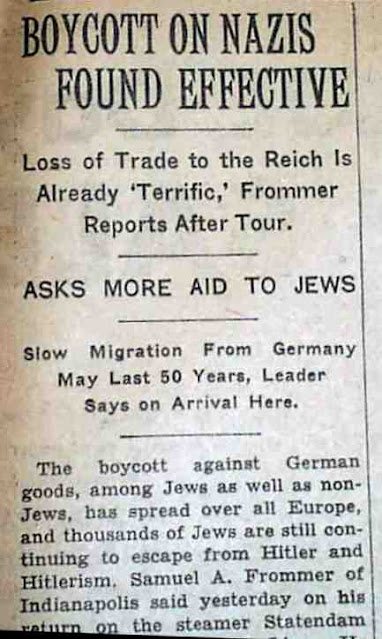
Ha’avara
When the Nazis came to power in January 1933 world Jewry was aghast and immediately began boycotting everything German. The reaction of the Zionists was completely different.
Berl Katznelson, Ben Gurion’s effective deputy, declared that the rise of Hitler was “an opportunity to build and flourish like none we have ever had or ever will have”. Ben Gurion was even more enthusiastic: The Nazi victory would become “a fertile force for Zionism.”
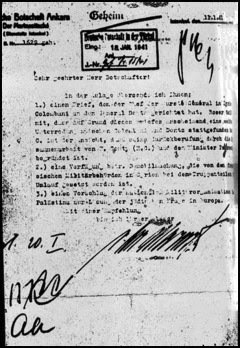
Such was his cynical attitude towards the rise of the Nazis and the danger they posed that even Ben Gurion’s official biographer, Shabtai Teveth, was forced to conclude that:
‘If there was a line in Ben-Gurion’s mind between the beneficial disaster and an all-destroying catastrophe, it must have been a very fine one.’
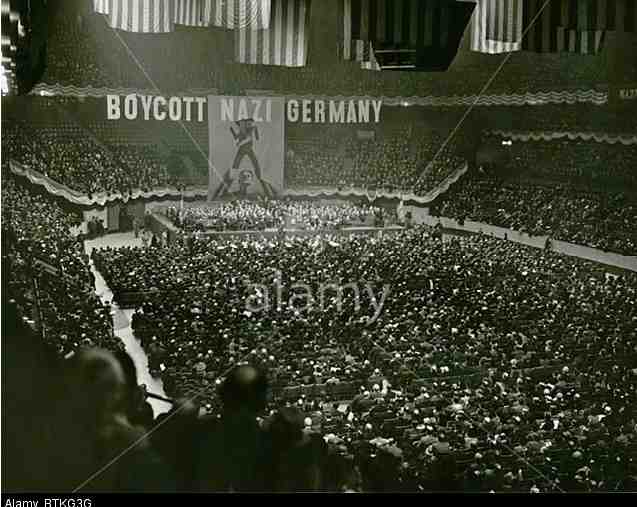
The title of the chapter on the holocaust in Teveth’s biography, The Burning Ground 1886-1948, is Disaster is Strength. To the Zionist leaders the disaster befalling European Jewry was their opportunity. Noah Lucas, a perceptive and critical Zionist historian wrote that:
‘As the European Holocaust erupted, Ben Gurion saw it as a decisive opportunity for Zionism… Ben Gurion above all others sensed the tremendous possibilities inherent in the dynamic of the chaos and carnage in Europe… In conditions of peace,… Zionism could not move the masses of world Jewry. The forces unleashed by Hitler in all their horror must be harnessed to the advantage of Zionism. … By the end of 1942… the struggle for a Jewish state became the primary concern of the movement.’
This was also the attitude of the German Zionists. Alone of German Jewish organisations they welcomed the Nuremberg Laws. On 21st June 1933 the ZVfD (German Zionist Federation) wrote a letter to Hitler:
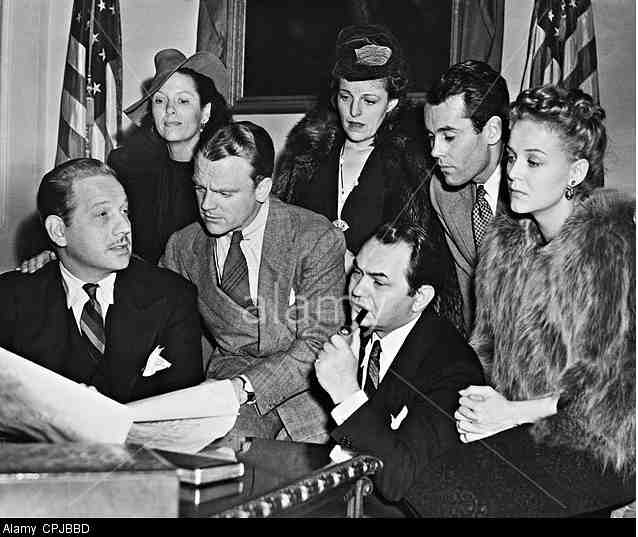
On the foundation of the new state, which has established the principle of race… fruitful activity for the fatherland is possible. Our acknowledgement of Jewish nationality provides for a clear and sincere relationship to the German people and its national and racial realities. Precisely because we don’t wish to falsify these fundamentals, because we too are against mixed marriages and are for maintaining the purity of the Jewish group… The realisation of Zionism could only be hurt by resentment of Jews abroad against the German development. Boycott propaganda… is in essence fundamentally unZionist, because Zionism wants not to do battle but to convince and to build.’
The German Zionists were just 2% of German Jews and were seen as the volkish Jews. One of their leaders, Rabbi Joachim Prinz wrote:
“It was morally disturbing to seem to be considered as the favoured children of the Nazi Government, particularly when it dissolved the anti-Zionist youth groups, and seemed in other ways to prefer the Zionists. The Nazis asked for a ‘more Zionist behaviour.”
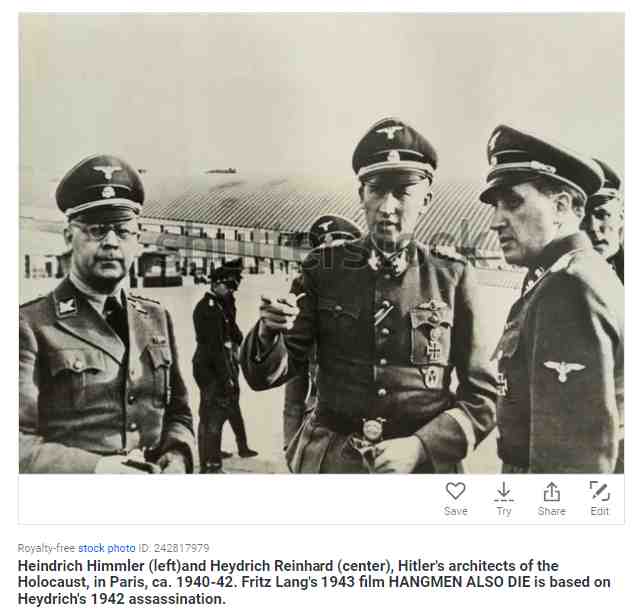
‘the activity of the Zionist-oriented youth organizations that are engaged in the occupational restructuring of the Jews for agriculture and manual trades prior to their emigration to Palestine lies in the interest of the National Socialist state’s leadership.’ 28.1.35. Heydrich Order
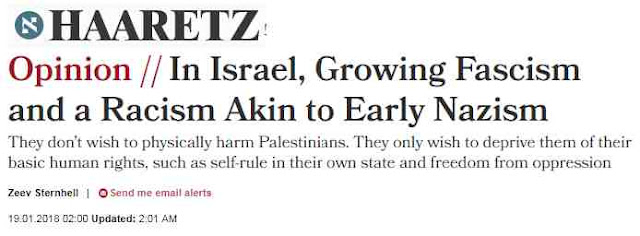
“in agreement with the great spiritual movement within Jewry itself, Zionism, whose position is based on the recognition of the unity of Jewry throughout the world, and the rejection of all ideas of mixing in”
This had been the position of the Nazis since 1920 when Alfred Rosenberg, their chief theoretician, wrote that:
‘Zionism must be vigorously supported in order to encourage a significant number of German Jews to leave for Palestine or other destinations.’
As Francis Nicosia noted Rosenberg
‘intended to use Zionism as a legal justification for depriving German Jews of their civil rights’ and he ‘sanctioned the use of the Zionist movement in the future drive to eliminate Jewish rights, Jewish influence and eventually the Jewish presence in Germany.’
Whereas most Jews supported a boycott of Nazi Germany the Zionists sought to trade with them. The concern of the Zionist leaders was not with saving the German Jews but saving the wealth of Germany’s Jews. That was why they agreed to the Ha’avara agreement in August 1933 which enabled German Jews to use their money to buy goods and machinery which would be exported to Palestine.
Those Jews whose funds were so used were allowed to take £1,000 out of the country. The entrance requirement to those without immigration certificates to Palestine was £1,000 which today would be worth about £85,000. Someone with money in the bank to buy industrial goods as well as £1,000 in cash was someone who would have little difficulty in entering most countries.
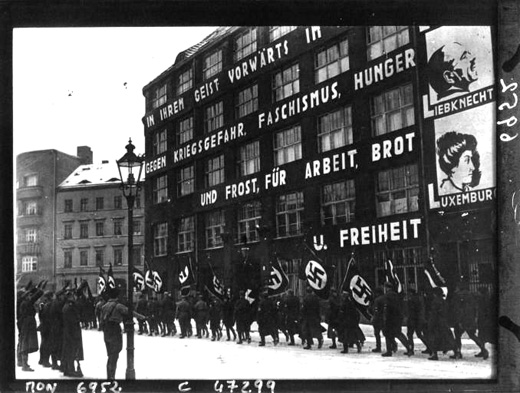
Only the richest German Jews were able to take advantage of Ha’avara. What Ha’avara did do was to enable the Nazis to break the Boycott of Nazi Germany. They proclaimed that whilst the non-Jews were boycotting Germany the Jews were doing a profitable trade using all their anti-Semitic imagery. Ha’avara came to the rescue of the Nazi government at the very time when it was weakest and could have been overthrown. That was why Hitler agreed to it. The Investor’s Review 5 August 1933 reported that ‘authoritative opinion is that Hitlerism will come to a sanguinary end before the New Year.’
Without the Boycott the Nazis would not have agreed to Ha’avara. The Zionists used the anti-fascist boycott movement in order to strike a deal with the Nazi state.
60% of investment in Jewish Palestine between 1933 and 1939 came from Nazi Germany. The Nazis literally built the ‘Jewish’ state. As Elie Wiesel, a Zionist who had survived Auschwitz, bitterly wrote:
‘Surely, Jewish Palestine… needed money to finance its development, but this brazen pragmatism went against the political philosophy of a majority of world Jewry. There developed a growing perception that instead of supporting and strengthening the boycott, Palestine was, in fact, sabotaging it.’
Today you might think that the Zionist movement’s sole concern during these years was with fighting Nazism but you would be wrong. Their ‘concern’ is of rather recent vintage. During the Hitler period they fought tirelessly to prioritise their own goals, building the ‘Jewish’ state at the expense of Europe’s Jews.
During the war it was the Zionist leadership themselves who attempted to deny that the holocaust was happening, preferring to believe that it was simply a question of a few pogroms.
The Zionist leaders fought against any attempt to rescue Europe’s Jews that didn’t involve emigration to Palestine. Their ‘logic’ was that wherever the Jews went they would carry anti-Semitism with them.
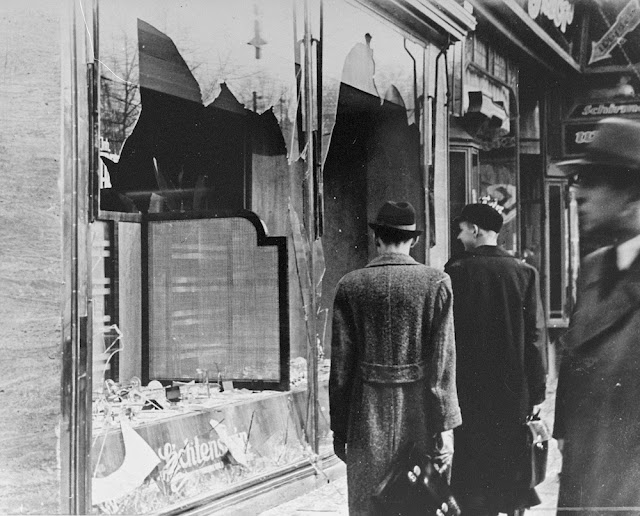
On 9 December 1938 Ben Gurion spoke to the Central Committee of Mapai. In November Kristallnacht, the Nazi pogrom had occurred. Virtually every synagogue in Germany had been burnt down. This action was deeply unpopular in Germany and even within the Nazi party. 30,000 Jews were imprisoned in concentration camps (those who were Zionists were almost immediately freed).
Under pressure from the Board of Deputies and British Jewry the Conservative government agreed to admit nearly 10,000 Jewish children to Britain. It was known as the Kindertransport. You might have thought that even the Zionists would be pleased. Not a bit of it. In a speech to the Central Committee of Mapai (the Israeli Labour Party) Ben Gurion gave vent to his anger:
If I knew that it would be possible to save all the children in Germany by bringing them over to England, and only half of them by transporting them to Eretz Yisrael, then I would opt for the second alternative. For we must weigh not only the life of these children, but also the history of the People of Israel.
david ben gurion, israel’s first prime minister, In a speech to Mapai’s Central Committee on 9 December 1938,
This can be found in the official biography of Ben Gurion (p.855 The Burning Ground). Nor was Ben Gurion’s response an idiosyncrasy. Malcolm MacDonald, the Colonial Secretary, recalled:
I remember at the time that Weizmann’s attitude shocked me. He insisted on the children going to Palestine. As far as he was concerned it was Palestine or nowhere. [Bethell, The Palestine Triangle]
When MacDonald refused to guarantee that the children would go on to Palestine Weizmann told him that: ‘We shall fight you – and when I say fight I mean fight.’
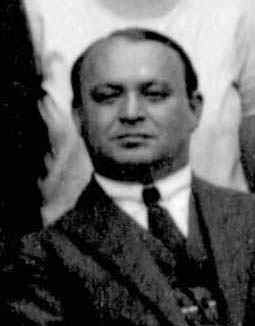
Fortunately the Board of Deputies had not yet been captured by the Zionists. This would occur in 1940 when Selig Brodetsky was elected President. Brodestky distinguished himself by sabotaging or blocking every attempt at rescue. If the Zionists had gained control in 1938 then the children of the Kindertransport might have become one more grisly statistic.
Refugeeism
The reason for the Zionist opposition to rescuing Jews for the sake of rescue ‘refugeeism’ was because the ‘logic’ of Zionism dictated it.
On 17 December 1938 Ben Gurion explained his thinking to the Zionist Executive when he made it clear that the Zionist movement did not support ‘refugeeism’, i.e. rescue for its own sake.
The Zionist movement opposed rescue to countries other than Palestine because if successful it would negate the very raison d’etre of Zionism. Zionism held that national ‘homelessness’ had caused anti-Semitism. Taking Jews from Germany to Britain would not solve the problem it would simply recreate it here.
Zionism didn’t believe that anti-Semitism could be defeated. They didn’t see it as the product of political and social forces in the societies where Jews lived. They had a racial conception of society.
Ben Gurion was extremely fearful that people would forget about Zionism and devote themselves to the rescue of Europe’s Jews:
If the Jews are faced with a choice between the refugee problem and rescuing Jews from concentration camps on the one hand, and aid for the national museum in Palestine on the other, the Jewish sense of pity will prevail and our people’s entire strength will be directed at aid for the refugees in the various countries. Zionism will vanish from the agenda and indeed not only world public opinion in England and America but also from Jewish public opinion. We are risking Zionism’s very existence if we allow the refugee problem to be separated from the Palestine problem.
David Ben-Gurion in a memo to the Zionist Executiveif i kn of 17 December 1938:
When rescue was raised the approach of the Zionists was consistent. They asked ‘what about Palestine’ even though its doors were shut. They opposed rescue schemes to Freiland in Australia, Alaska, China, Santo Domingo, Mindano and other places. The Zionist leaders preferred to block any rescue rather than have Jews go to places other than Palestine. This despite knowing that they were therefore being consigned to a certain death. This was the cruel logic of Zionism.
When in 1938 Roosevelt proposed the Evian conference in order to discuss the mounting Jewish refugee problem, the Zionists were greatly troubled. This was the last thing that they wanted. Although Roosevelt’s proposal was only a face saving exercise the Zionists were afraid that it might succeed in rescuing Germany’s Jews.
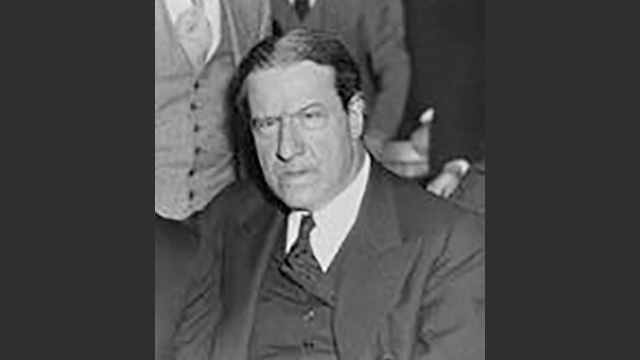
Georg Landauer, later Director of the JA’s Central Bureau for the Settlement of German Jews, wrote to American Zionist leader Stephen Wise on Feb. 13,1938:
I am writing this letter at the request of Dr. Weizmann because we are extremely concerned lest the problem be presented in a way which could prejudice the activity for Eretz Israel. Even if the conference does not propose immediately after its opening other countries but Eretz Israel as venues for Jewish emigration, it will certainly arouse a public response that could put the importance of Eretz Israel in the shade…We are particularly worried that it would move Jewish organizations to collect large sums of money for aid to Jewish refugees, and these collections could interfere with our collection efforts.” [Boaz Evron, Jewish State or Israeli Nation, p. 178].
Menachem Ussishkin of the Jewish Agency’s Executive stated, on June 26,1938 that:
“He is highly concerned at the Evian conference… Mr. Greenbaum is right in stating that there is a danger that the Jewish people also will take Eretz Israel off its agenda, and this should be viewed by us as a terrible danger. He hoped to hear in Evian that Eretz Israel remains the main venue for Jewish emigration. All other emigration countries do not interest him… The greatest danger is that attempts will be made to find other territories for Jewish emigration.”
At the same meeting Ben-Gurion stated that:
“No rationalizations can turn the conference from a harmful to a useful one. What can and should be done is to limit the damage as far as possible. He ‘doesn’t know whether the Evian conference will open the gates of other countries to Jewish immigration, but like Greenbaum and Ussishkin he fears that at this time the conference is liable to cause immense harm to Eretz Israel and Zionism.‘ It was summed up in the meeting that the Zionist thing to do is ‘to belittle the Conference as far as possible and to cause it to decide nothing.‘ ”
david ben-gurion on the 1938 evian conference called to find a solution to the jewish refugee problem
Amazing as it seems, the Zionist leaders greatest fear was that a solution to the refugee problem could be found to the danger that German Jews were then in without involving Palestine. As Ben Gurion had made clear given the choice between finding a refuge in a country other than Palestine and perishing they preferred the latter.
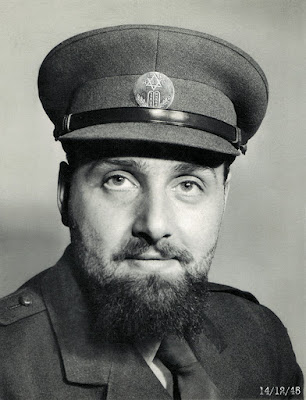
One of the most egregious cases of obstructing an attempt to rescue Jews was by the President of the Board of Deputies of British Jews, Selig Brodetsky. When the Allies announced on 17 December 1942 that the Nazis were embarked on the extermination of the Jews of Europe, the Executive Director of the Chief Rabbi’s Religious Emergency Council Rabbi Dr Solomon Schonfeld acted securing the support of 277 parliamentarians calling on the government to find a refuge in either its own territories or the colonies for Jewish refugees.

Immediately the Zionists leapt into action, raising the demand ‘what about Palestine’. The British, in response to the demands of the Palestinians, had strictly limited Jewish immigration. The Zionists were deliberately using Jewish refugees from Europe as a battering ram to open the gates of Palestine. They threatened to oppose the motion if it didn’t mention Palestine. That was their sole concern. Schonfeld wrote, in a letter to The Times that:
It was useless to argue with a then current Zionist argument: ‘Every nation has had its dead in the fight for its homeland the sufferers under Hitler are our dead in our fight’. (6.6.61)
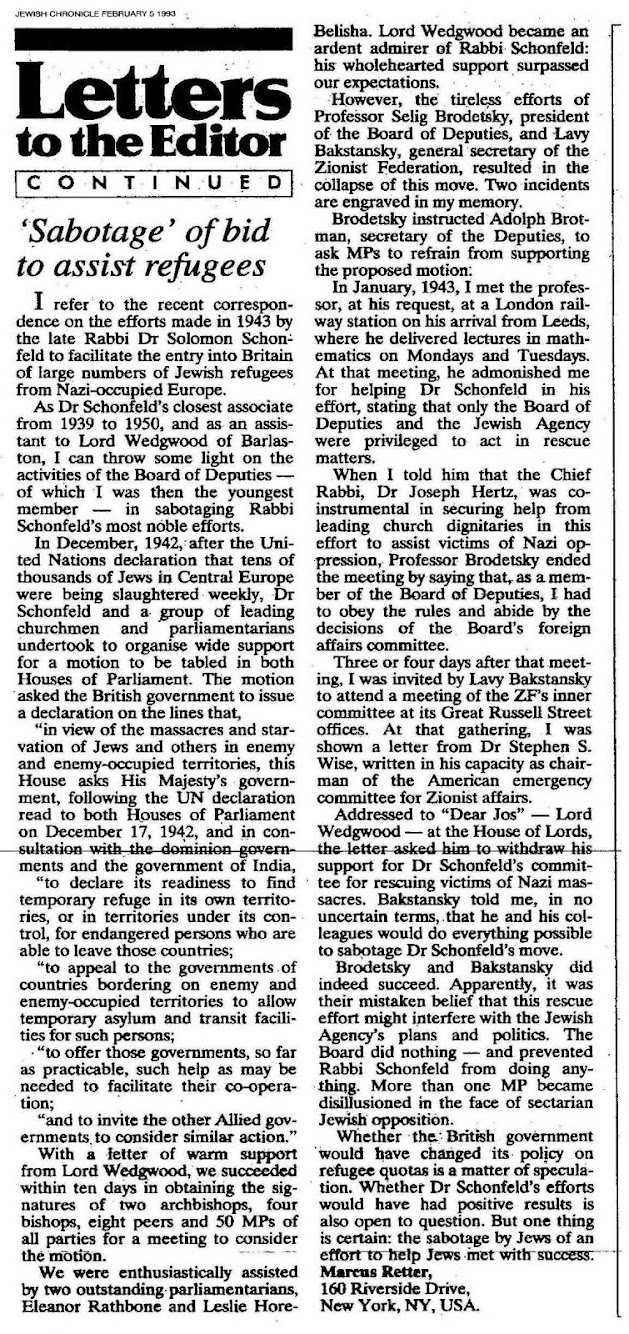
This issue surfaced 50 years later in a letter (JC 5.2.93.) from Marcus Retter, a close associate of Rabbi Schonfeld and an assistant to Lord Wedgewood. Retter alleged that Brodetsky and Brotman, the Board Secretary, had deliberately sabotaged Schonfeld’s attempts at rescue despite Schonfeld, with Wedgewood’s support, having mobilised considerable parliamentary and ecclesiastical support.
The tireless efforts of Professor Selig Brodetsky, president of the Board of Deputies and Lavy Bakstansky, general secretary of the Zionist Federation, resulted in the collapse of this move. Two incidents are engraved in my memory. Brodetsky instructed Adolph Brotman… to ask MPs to refrain from supporting the proposed motion.[1]
Retter met Brodetsky in January 1943.
At that meeting he admonished me for helping Dr Schonfeld in his effort, stating that only the Board of Deputies and the Jewish Agency were privileged to act in rescue matters.
Retter, was told that as a member of the Board:
I had to obey the rules and abide by the decisions of the Board’s foreign affairs committee.
A few days later he was shown by Bakstansky a letter from Stephen Wise which asked Lord Wedgewood ‘to withdraw his support for Dr Schonfeld’s committee for rescuing victims of Nazi massacres’. Bakstansky told Retter that he and his colleagues ‘would do everything possible to sabotage Dr Schonfeld’s move.’ This was because Schonfeld’s efforts would:
interfere with the Jewish Agency’s plans and politics. The Board did nothing – and prevented Rabbi Schonfeld from doing anything.
The Jewish Agency was the Zionist government-in-waiting in Palestine. Rescue had been sacrificed to Zionist politics. Retter concluded that whether Schonfeld’s efforts would have succeeded is a matter of speculation.
One thing is for certain: the sabotage by Jews of efforts to help Jews met with success. [2]
Geoffrey Alderman, historian of the British Jewish community confirmed (JC 26.2.93) that
Marcus Retter’s account of the steps taken by Professor Brodetsky and his allies in sabotaging Rabbi Dr Solomon Schonfeld’s motion and of their reasons for doing so, is perfectly correct.
Schonfeld had, within ten days, obtained backing for his motion from ‘two Archbishops, eight Peers, four Bishops and 48 members of all parties.’ Their efforts were met by a
persistent attempt on the part of Brodetsky and some of his colleagues to sabotage the entire move… he and his collaborators asked members of the House to desist from supporting the new effort… To do nothing themselves and to prevent others from doing so is strange statesmanship.
The results were predictable:
‘More than one MP has expressed a feeling of becoming wearied of trying to help the victims in the face of such sectarian Jewish opposition.’ [3]
Brodetsky justified his actions on the grounds that
the intervention of an unauthorized individual however well intentioned, in a situation of this sort naturally brings confusion and may have some damaging effects.
While thousands of Jews were burning each day in Auschwitz, Brodetsky and the Board were more concerned with challenges to their power and prestige.
Alderman speculated that Brodetsky’s reaction might have been different if the motion had mentioned Palestine. (JC 26.2.93.)
If we jump forward to March 1944, when the holocaust had already devoured 5 million Jews, Nazi Germany decided to invade its ally Hungary. Admiral Horthy, the leader of Hungary, had begun to get cold feet as it became clear that Germany was losing the war. Immediately the last Jewish community that had been untouched by the holocaust was in deadly danger. Some 800,00 Jews.
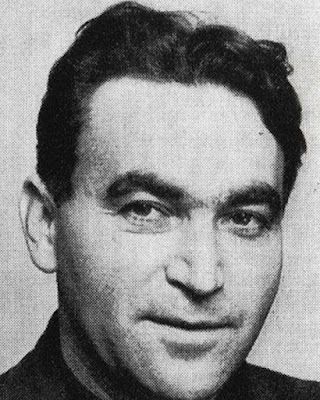
On April 24 two Jewish escapees from Auschwitz, Rudolf Vrba and Alfred Wetzler reached Slovakia and met the Jewish Council there. They sat down to write what became the Auschwitz Protocols detailing the layout of the gas chambers and the preparations being made to receive Hungary’s Jews. They described the extermination process in the past two years, which they estimated at 1.75 million. Prior to the Protocols it had been believed that Auschwitz was a labour not an extermination camp.
The leader of Hungarian Zionism Rudolf Kasztner came to visit Slovakia at the end of April 1944 and took possession of a copy of the Protocols. But instead of distributing them to Hungarian Jewry he suppressed them and reached an agreement with Adolf Eichmann to keep quiet about the Nazi plans. In exchange he was promised a train out of Hungary for the Zionist and Jewish elite. Some 600 people later increased to 1,600.
Kasztner’s Zionist friends helped in keeping calm in the Kolosvar Ghetto even reassuring the Jews awaiting deportation that they were being taken to a place of resettlement, Kenyermeze and if they wanted the best places they should get on the trains first.
When the survivors of Auschwitz reached Palestine they sought revenge against Kasztner. Malchiel Greenwald, a pamphleteer and Hungarian refugee, accused Kasztner of having betrayed Hungary’s Jews to the Nazis. Israel’s Labour government made the fatal mistake of forcing Kasztner to sue Greenwald for libel. Clearly they had become rattled at the accusation that Mapai, the Israeli Labor Party, and the Jewish Agency had collaborated with the Nazis.
In 1954 the Kasztner trial commenced but it didn’t go according to plan. A stream of survivors from Auschwitz came to testify against Kasztner. Even worse Kasztner lied on oath denying that he had given testimony at Nuremberg in favour of Kurt Becher, Himmler’s personal representative in Germany. When documentary evidence proved that Kasztner had lied Judge Benjamin Halevi became hostile and reached a verdict that Kasztner had ‘sold his soul to Satan’.
Kasztner himself was later assassinated, almost certainly by the secret police Shin Bet. The verdict was overturned by the Supreme Court on political and legal grounds but by then the damage had been done. The government fell as a result.
In his appeal to the Supreme Court, Attorney General Chaim Cohen explained why Kasztner’s appeal should be upheld:
If in Kasztner’s opinion, rightly or wrongly, he believed that one million Jews were hopelessly doomed, he was allowed not to inform them of their fate; and to concentrate on the saving of the few. He was entitled to make a deal with the Nazis for the saving of a few hundred and entitled not to warn the millions … that was his duty… It has always been our Zionist tradition to select the few out of many in arranging the immigration to Palestine … Are we to be called traitors? [4]
Eichmann, the chief exterminator, knew that the Jews would be peaceful and not resist if he allowed the Prominents to be saved, that the Train of the Prominents was organized on Eichmann’s orders to facilitate the extermination of the whole people. … if all the Jews of Hungary are to be sent to their death he is entitled to organize a rescue train for 600 people. He is not only entitled to it but is also bound to act accordingly.
But Hungarian Jewry were not ‘hopelessly doomed’. The Nazis did not have the resources to hunt down Hungary’s Jews. They were running out of time. Eichmann’s Judenkommando had less than 300 staff including secretaries and drivers. They needed the collaboration of the Zionist leaders and their bourgeois counterparts to help round up the Jews.
Zionist historians at Israel’s holocaust propaganda museuem, Yad Vashem have rehabilitated Kasztner. Yehuda Bauer argued that Hungarian Jewry already knew of Auschwitz, which they didn’t. Elie Wiesel told how
‘We were taken just two weeks before D-Day, and we did not know that Auschwitz existed… everyone knew except the victims.’
Wiesel described how their maid Maria came to them ‘sobbing’. ‘She begged us to come with her to her village where she had prepared a safe shelter.’ Because they knew nothing they turned her down. The same was true with many Jews.
I describe Yad Vashem as a ‘holocaust propaganda museum’ deliberately. It is a state institution funded and financed in order to harness the holocaust to Zionism. It has demonised the Palestinians and refused to speak up against racism in Israeli society. It draws Zionist lessons from the holocaust namely that anti-Semitism is wrong but no other form of racism is to be condemned.
Every visiting statesman to Israel pays homage to Israel and Zionism at Yad Vashem. Even John Vorster, Prime Minister of Apartheid South Africa, included Yad Vashem in his schedule in 1976 despite having been imprisoned during the war for supporting the Nazis. Since then a host of racist and fascist politicians have visited Yad Vashem without a word of criticism from Yad Vashem’s historians.
Bolsonaro and Duterte, the far-Right Presidents of Brazil and Philippines, both of whom have expressed their admiration for Hitler, have been made welcome, So too has Victor Orban, the anti-Semitic premier of Hungary who has called Admiral Horthy, who presided over the deportation of nearly half a million Jews to Auschwitz, an ‘exceptional statesman’. On the latter occasion Orban faced a picket of holocaust survivors and anti-racists.
It was no different when it came to Netanyahu’s repeated attempts to deport refugees from Africa for the double ‘crime’ of not being Jewish or White. Ha’aretz journalist Nir Gontarz described his reception when he rang YV and asked them to publicly condemn Netanyahu’s attempt to deport the refugees:
‘One after the other of the senior staff there, including Mr. Avner Shalev [the director], slammed the phone down on me when I asked to speak to them… I asked them this morning to remove from their database the details I gave them in the past about my family.’
Zionism has used and abused the memory of those who died in the holocaust for its own political purposes. Today in Israel up to half the remaining holocaust survivors, in whose name Israel has extracted billions of shekels in reparations from Germany, live in poverty forced to choose between heating and eating.
Israel, which has the second largest arms budget in the world per capita, is incapable of looking after its few remaining holocaust survivors. But if it neglects those who were actually in the camps it assiduously promotes the myth that Israel can lay claim to the memory of the holocaust dead.
My book destroys some of the main myths concerning Zionism and the holocaust. It is up to you to use it well!
The Answers to the Short Quiz I posted:
1. Was Ken Livingstone a ‘Nazi apologist’ (John Mann) when he said that Hitler and the Nazis supported Zionism? NO
2. Who was it who said that Palestine was an ‘Institute for the fumigation of Jewish vermin’? Pinhas Rosenbluth, Israel’s first Minister of Justice
3. Which leading Zionist spoke of ‘their common toleration of Nazism’ Chaim Weizmann, Israel’s first President
4. Which prominent Zionist, when accused of being an anti-Semite said ‘‘I have already established here [in his diary] that I despise the cancers of Judaism more than does the worst anti-Semite.’ Arthur Ruppin, the Director of the Palestine Office in Palestine from 1907
5. Which leading Zionist insisted that ‘Jewish Agency Executive funds be used only for rescue by immigration to Palestine, whereas rescue by assisting Jews to survive elsewhere was to be funded solely by private and organizational donations.’ ? David Ben Gurion, Israel’s first Prime Minister
6. Who was it who said that ‘the activity of the Zionist-oriented youth organisations … lies in the interest of the National Socialist state’s leadership…. (they are) not to be treated with that strictness that it is necessary to apply to the members of the so-called German-Jewish organisations (assimilationists).’ Reinhard Heydrich, Deputy to Himmler
7. Who wrote that ‘Zionism must be vigorously supported in order to encourage a significant number of German Jews to leave for Palestine or other destinations.’ Alfred Rosenberg, main Nazi theoretician
8. Who said ‘I accuse certain Jewish leaders of one of the most ghastly deeds of the war. This small group of quislings knew what was happening to their brethren in Hitler’s gas chambers and bought their own lives with the price of silence. Among them was Dr Kasztner.’ Rudolf Vrba, Jewish escapee from Auschwitz
9. Who said ‘It was morally disturbing to seem to be considered as the favoured children of the Nazi Government, particularly when it dissolved the anti-Zionist youth groups, and seemed in other ways to prefer the Zionists. The Nazis asked for a more Zionist behaviour.’? Rabbi Joachim Prinz, prominent leader of German Zionist Federation
10. Who wrote:
‘As the European holocaust erupted, Ben-Gurion saw it as a decisive opportunity for Zionism… In conditions of peace,… Zionism could not move the masses of world Jewry. The forces unleashed by Hitler in all their horror must be harnessed to the advantage of Zionism. … By the end of 1942… the struggle for a Jewish state became the primary concern of the movement.’ Noah Lucas, critical Zionist historian at Sheffield University
[1] JC 5.2.93.
[2] Ibid.
[3] JC 5.2.93.
[4] Hecht, p. 195, https://tinyurl.com/bnycybb
A compendium of horrors here, which must have cost countless lives. Yet mention this in some circles of present-day UK politics and see the hatred, the accusations mount up. Much of this has been purposefully concealed, and I’m certain that some interests, powerful and unpleasant, would keep it that way.
Thanks, anyway, for shining a spotlight on this catalogue of the devious and destructive.